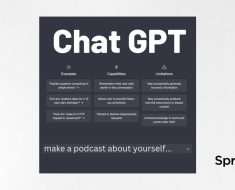
One role that has been gaining significant attention recently is that of the Multilingual Prompt Engineer.
These professionals play a crucial role in developing and fine-tuning AI models that can understand and generate human-like text in multiple languages.
In this blog post, we’ll explore the growing demand for Multilingual Prompt Engineers, what they do, the skills required, and the career prospects in this exciting field.
Understanding the Role of a Multilingual Prompt Engineer
Before we delve into the growing demand for Multilingual Prompt Engineers, let’s first understand what this role entails.
A Multilingual Prompt Engineer is a specialist in the field of natural language processing (NLP) and artificial intelligence (AI). Their primary responsibility is to create and optimize prompts that drive AI models to generate coherent and contextually relevant responses in multiple languages.
These prompts are essential as they serve as input or instructions to AI models like GPT-3, GPT-4, or other similar systems.
The role involves designing prompts that elicit specific responses from AI models. It’s not just about translating prompts from one language to another but also about ensuring that the translated prompts maintain the nuances and context required for accurate and meaningful responses.
Multilingual Prompt Engineers work on developing AI systems that can understand and generate text in languages from around the world, including low-resource languages that may not have as much training data available.
Why the Growing Demand?
The demand for Multilingual Prompt Engineers is driven by several factors, reflecting the increasing importance of multilingual AI systems in various applications:
Globalization of Technology
The globalization of technology refers to the increasing interconnectedness of the world through the spread and adoption of technological innovations. This phenomenon has far-reaching implications across industries, and it’s one of the driving forces behind the demand for Multilingual Prompt Engineers.
Here’s why:
1. Expanding Markets
As technology advances, companies are looking to expand their reach into new markets worldwide. This expansion often involves catering to customers who speak different languages.
For example, an e-commerce giant that originated in the United States may want to tap into the Chinese market, where Mandarin is the predominant language.
To effectively serve this market, they need AI systems that can understand and respond to customer inquiries in Mandarin. Multilingual Prompt Engineers are essential in ensuring the success of such global expansion efforts by fine-tuning AI models to function seamlessly in different languages.
2. Cross-Border Collaboration
In today’s global economy, cross-border collaboration is common. Businesses often work with partners, suppliers, and clients from various parts of the world. Effective communication in multiple languages is crucial in such collaborations.
Multilingual AI systems can assist in translating documents, facilitating communication, and ensuring that messages are conveyed accurately and professionally.
Multilingual Prompt Engineers play a vital role in developing AI systems that enable smooth cross-border collaboration.
3. Multilingual Customer Support
Many companies provide customer support services to a diverse customer base. Customers expect to receive assistance in their native language, and this is especially true for critical industries like healthcare and finance.
Multilingual Prompt Engineers are responsible for creating prompts that enable AI chatbots or virtual assistants to understand and respond to customer inquiries in multiple languages, enhancing the quality of customer support services.
4. Content Localization
Content is king in the digital age, and businesses are increasingly focused on creating content that resonates with their target audiences. Content localization involves adapting content to suit the linguistic and cultural preferences of different regions.
Multilingual Prompt Engineers work on AI systems that can generate content in multiple languages while maintaining the nuances and cultural relevance required for effective communication.
5. Personalization and Global User Experience
Personalization is a key strategy for engaging users and enhancing their experience. Multilingual AI systems are employed to personalize content, recommendations, and interactions in real-time. For example, an e-learning platform may use AI to recommend courses to users based on their language preferences and past interactions.
Multilingual Prompt Engineers are instrumental in designing prompts that enable AI models to tailor user experiences in multiple languages.
The globalization of technology has transformed the business landscape, making it essential for companies to communicate, collaborate, and cater to customers in multiple languages. Multilingual Prompt Engineers are at the forefront of this transformation, working to ensure that AI systems can effectively operate and interact in diverse linguistic environments, thereby enabling businesses to thrive in the global marketplace.
As technology continues to advance and businesses expand their international footprint, the demand for these skilled professionals will only continue to grow.
Improving User Experience
User experience (UX) is a fundamental factor in the success of any product or service, and it’s no different when it comes to AI-powered applications. The quality of the user experience directly impacts user satisfaction, engagement, and the overall success of a product or service. Multilingual Prompt Engineers contribute significantly to enhancing UX in several ways:
1. Personalization in the User’s Language
One of the primary ways to improve user experience is by delivering personalized content and interactions. Multilingual Prompt Engineers play a key role in this by enabling AI systems to understand user preferences and communicate in the user’s preferred language. This personalization creates a more engaging and relevant experience for users.
For example, consider a music streaming service. By analyzing a user’s language preferences and listening history, the AI can recommend songs, playlists, and artists in the user’s preferred language, making the experience more enjoyable and tailored to individual tastes.
2. Language Accessibility
Accessibility is a critical component of UX. Multilingual Prompt Engineers ensure that AI-powered applications are accessible to individuals who speak different languages. This is especially important in sectors like healthcare and government services, where language barriers can have serious consequences.
By developing AI systems that can communicate in multiple languages, Multilingual Prompt Engineers make it possible for users from diverse linguistic backgrounds to access essential services and information without obstacles.
3. Contextual Understanding
Effective communication in a user’s language requires more than just translation; it necessitates an understanding of context and cultural nuances. Multilingual Prompt Engineers work to fine-tune AI models to not only translate text but also to capture the subtleties of language usage.
For example, in customer support applications, an AI chatbot must understand the context of a user’s inquiry in their language to provide accurate and contextually relevant responses. Multilingual Prompt Engineers ensure that AI systems can grasp context and respond appropriately in various languages, leading to a smoother and more meaningful user experience.
4. Multilingual Content Generation
Content generation is another area where Multilingual Prompt Engineers play a vital role in enhancing user experience. They develop prompts that instruct AI models to create content in multiple languages. This is particularly valuable in content marketing, where businesses aim to reach a global audience.
For instance, an e-commerce platform may use AI-generated product descriptions in various languages to appeal to customers worldwide. Multilingual Prompt Engineers are responsible for creating the prompts that enable the AI to produce accurate and persuasive content in different languages, contributing to a more engaging user experience.
5. Multilingual Virtual Assistants
Virtual assistants powered by AI are becoming increasingly common in various applications, from smartphones and smart speakers to websites and mobile apps. Multilingual Prompt Engineers design prompts that enable these virtual assistants to provide assistance and information in multiple languages.
Imagine a travel app with a virtual assistant that can help users book flights, hotels, and activities in different countries. Multilingual Prompt Engineers make it possible for the virtual assistant to understand and respond to user requests in various languages, making the travel planning experience smoother and more enjoyable for users.
Multilingual Prompt Engineers play a pivotal role in improving user experience by enabling AI systems to communicate effectively, personalize interactions, and adapt to the linguistic and cultural preferences of users.
As businesses and organizations strive to cater to a global audience and provide seamless multilingual experiences, the demand for professionals who can fine-tune AI models for this purpose continues to grow.
Ultimately, by focusing on improving user experience, Multilingual Prompt Engineers contribute to the success and competitiveness of AI-powered products and services in the global marketplace.
Advancements in NLP
Advancements in Natural Language Processing (NLP) have been transformative in the world of artificial intelligence and have given rise to numerous applications, from chatbots and virtual assistants to content generation and sentiment analysis. These advancements are closely tied to the growing demand for Multilingual Prompt Engineers.
Here’s how:
1. Large-Scale Pre-Trained Models
One of the key breakthroughs in NLP has been the development of large-scale pre-trained models like GPT-3 and GPT-4. These models, created by organizations like OpenAI, are trained on massive datasets containing text from the internet, making them capable of understanding and generating human-like text in multiple languages.
However, fine-tuning these models to perform specific tasks and adapt to different languages requires the expertise of Multilingual Prompt Engineers.
Multilingual Prompt Engineers are responsible for designing prompts that can harness the power of these large-scale models effectively. They create prompts that guide the models to produce contextually relevant and coherent responses in various languages. Their role is not merely about translation but also about optimizing prompts for specific tasks and languages, enabling these models to excel in a multilingual context.
2. Multilingual Applications
Advancements in NLP have led to a surge in the development of multilingual applications. These applications aim to serve global audiences by providing services and content in multiple languages.
Whether it’s language translation services, multilingual customer support, or AI-driven content generation, the ability to communicate effectively in various languages is essential.
Multilingual Prompt Engineers are at the forefront of building and fine-tuning the AI systems that power these applications. They ensure that the AI models can understand and generate text in different languages with accuracy and fluency. This includes addressing challenges such as language-specific nuances, idiomatic expressions, and cultural context, all of which are crucial for a successful multilingual AI application.
3. Multilingual Sentiment Analysis
Sentiment analysis is another area where advancements in NLP have opened up new possibilities. Businesses and organizations are increasingly interested in understanding customer sentiment and feedback across different regions and languages. Multilingual Prompt Engineers develop prompts that enable AI models to analyze sentiment in various languages, helping companies gauge customer satisfaction and make data-driven decisions.
For instance, a global brand may use AI-powered sentiment analysis to monitor social media mentions and customer reviews in multiple languages. Multilingual Prompt Engineers create prompts that guide the AI in identifying and analyzing sentiment across different linguistic contexts, providing valuable insights for the brand’s global strategy.
4. Customization for Language and Region
Not all languages are equal when it comes to NLP models. Some languages have more training data available, while others are considered “low-resource” languages with limited data. Multilingual Prompt Engineers specialize in customizing AI models for both well-resourced and low-resource languages.
They work on adapting prompts and fine-tuning models to perform optimally in various linguistic scenarios. This expertise is particularly valuable for businesses and organizations operating in regions where low-resource languages are prevalent. Multilingual Prompt Engineers ensure that AI systems can communicate effectively and provide relevant information in these languages, bridging the digital divide.
5. Ethical Considerations
With great power comes great responsibility, and the development and deployment of advanced NLP models raise ethical concerns. Multilingual Prompt Engineers are not only responsible for optimizing models for performance but also for ensuring ethical usage.
They must consider issues such as bias in AI systems, hate speech detection, and content moderation across multiple languages. By crafting prompts that encourage responsible and unbiased behavior from AI models, Multilingual Prompt Engineers contribute to creating AI systems that respect cultural diversity and societal norms.
In conclusion, advancements in NLP have opened up a world of possibilities for multilingual AI applications, but these possibilities come with unique challenges. Multilingual Prompt Engineers are the experts who navigate these challenges, ensuring that AI systems can understand, generate, and interact in multiple languages effectively and responsibly. As NLP technology continues to advance, the demand for these skilled professionals will remain high, reflecting the critical role they play in shaping the future of multilingual AI.
Compliance and Localization
Compliance and localization are two essential aspects of deploying AI and NLP applications in various industries and regions. Multilingual Prompt Engineers are instrumental in addressing these aspects, which are critical for businesses and organizations operating globally.
Here’s how they contribute:
1. Regulatory Compliance
Different regions and industries often have specific regulations and compliance requirements related to language use, data protection, and content moderation. Failure to comply with these regulations can result in legal consequences and damage to a brand’s reputation.
Multilingual Prompt Engineers are responsible for creating prompts and guidelines that ensure AI systems adhere to these regulations.
For example:
- Healthcare Compliance: In the healthcare sector, patient information must be handled in accordance with strict privacy laws such as the Health Insurance Portability and Accountability Act (HIPAA) in the United States. Multilingual Prompt Engineers develop prompts that guide AI systems in providing healthcare information and support while maintaining patient confidentiality and compliance with relevant laws.
- Financial Regulations: In the financial industry, AI-powered chatbots and virtual assistants must comply with financial regulations that vary by country. Multilingual Prompt Engineers design prompts to ensure that AI responses do not violate these regulations, thereby mitigating legal risks.
2. Content Localization
Localization involves adapting content and user experiences to specific languages, cultures, and regions. Multilingual Prompt Engineers work on AI systems to ensure that content is not only translated accurately but also culturally appropriate and contextually relevant.
For instance:
- E-commerce: Multilingual AI is crucial for global e-commerce platforms. Multilingual Prompt Engineers develop prompts that enable AI systems to understand and communicate product descriptions, pricing, and promotions in a way that resonates with local audiences. This includes adjusting for currency, units of measurement, and cultural sensitivities.
- Legal Services: In the legal sector, AI systems are used for document translation and legal research. Multilingual Prompt Engineers create prompts that ensure accurate translations of legal documents while considering the nuances of legal terminology in different languages and legal systems.
3. Ethical Considerations in Compliance and Localization
Ethical considerations are paramount when it comes to compliance and localization. Multilingual Prompt Engineers must be conscious of the potential for bias, misinformation, or culturally insensitive content in AI responses.
- Bias Mitigation: They design prompts that encourage AI models to provide balanced and unbiased information. For example, when translating news articles, the prompts may instruct the AI to avoid sensationalism or politically biased language.
- Cultural Sensitivity: Multilingual Prompt Engineers take into account cultural differences in communication styles and sensitivities. They ensure that AI responses are respectful of cultural norms and avoid inadvertently causing offense.
4. Low-Resource Languages
Low-resource languages are languages for which there is limited training data available. Compliance and localization efforts are often more challenging in these languages due to the scarcity of resources.
Multilingual Prompt Engineers specialize in adapting AI systems for low-resource languages. They create prompts and strategies that help AI models perform well in these linguistic environments, ensuring that compliance and localization efforts are not limited to widely spoken languages but extend to underserved linguistic communities.
Multilingual Prompt Engineers play a pivotal role in ensuring compliance with regulations and effective content localization in multilingual AI applications. By designing prompts that guide AI systems to meet legal requirements and cultural expectations, they enable businesses and organizations to operate responsibly and effectively in diverse linguistic and regulatory environments.
In addition, their expertise in addressing the unique challenges of low-resource languages helps extend the benefits of AI and NLP to a wider global audience while respecting local laws and customs.
5. Expanding AI Adoption
AI adoption is on the rise across various sectors, from healthcare and finance to e-commerce and customer support. As AI becomes more prevalent, the need for multilingual capabilities grows, leading to a higher demand for professionals who can bridge the language gap.
Essential Skills for Multilingual Prompt Engineers
To meet the growing demand for Multilingual Prompt Engineers, it’s essential to possess a diverse skill set.
Here are some of the key skills and qualifications needed to excel in this role:
1. Strong Linguistic Proficiency
A deep understanding of the linguistic nuances, grammar, and cultural aspects of multiple languages is crucial. Multilingual Prompt Engineers should be proficient in the languages they work with to create contextually accurate prompts.
2. Natural Language Processing (NLP)
Proficiency in NLP techniques and tools is essential. This includes knowledge of tokenization, part-of-speech tagging, named entity recognition, and sentiment analysis. Familiarity with NLP libraries such as spaCy, NLTK, or Hugging Face Transformers is a plus.
3. AI Model Expertise
Multilingual Prompt Engineers need to understand how AI models like GPT-3 and GPT-4 work. This includes knowledge of model architecture, fine-tuning, and the ability to optimize prompts to achieve desired outcomes.
4. Data Analysis and Interpretation
Analyzing data and interpreting results is a fundamental skill. Multilingual Prompt Engineers should be able to evaluate the performance of AI models and make data-driven decisions to improve them.
5. Programming Skills
Proficiency in programming languages such as Python is essential for implementing and fine-tuning AI models. Scripting and automation skills can also be valuable for streamlining tasks.
6. Cross-Cultural Communication
Effective communication and collaboration are key, especially when working with international teams or clients. Multilingual Prompt Engineers should be adept at bridging language and cultural gaps.
7. Continuous Learning
The field of AI and NLP is constantly evolving. Being open to learning new techniques, staying updated with the latest research, and adapting to changing technologies is vital for success.
Career Prospects for Multilingual Prompt Engineers
The demand for Multilingual Prompt Engineers is expected to continue to rise as AI technologies become more integral to various industries. Here are some career prospects and opportunities in this field:
1. Multinational Corporations
Large multinational companies often require Multilingual Prompt Engineers to support their global expansion efforts. These professionals can find opportunities in areas such as customer support, content translation, and product localization.
2. Language Technology Companies
Companies specializing in language technology, translation services, or NLP applications are always in need of experts who can create and fine-tune multilingual AI models.
3. AI Research and Development
Working in AI research and development offers the chance to contribute to cutting-edge advancements in the field. Multilingual Prompt Engineers can collaborate with research teams to improve AI model capabilities.
4. Freelancing and Consulting
Experienced Multilingual Prompt Engineers may choose to work independently as freelancers or consultants, offering their expertise to a variety of clients and projects.
5. Education and Training
As the demand for Multilingual Prompt Engineers grows, so does the need for education and training programs. Professionals in this field can explore opportunities in teaching and training the next generation of AI practitioners.
Conclusion
The growing demand for Multilingual Prompt Engineers is a testament to the increasing importance of multilingual AI systems in today’s interconnected world. These professionals play a pivotal role in enabling AI systems to communicate effectively in multiple languages, driving global innovation and facilitating cross-cultural interactions.
With the right skills and qualifications, a career as a Multilingual Prompt Engineer can be both rewarding and impactful, offering numerous opportunities in various industries and sectors.
As AI technology continues to evolve, so too will the demand for experts who can bridge the language gap and unlock the full potential of multilingual AI systems.





